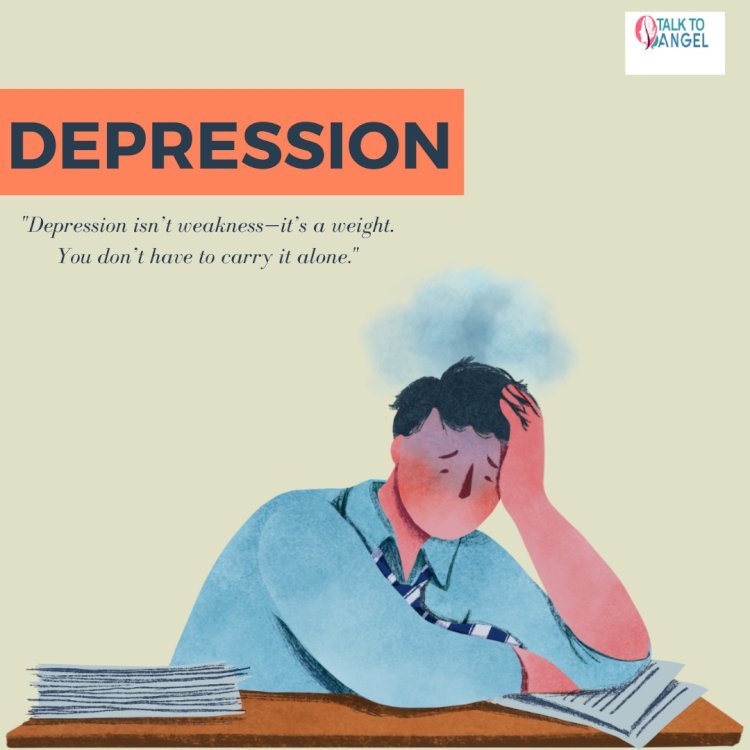The Impact of Depression in Teenagers: Symptoms and Treatment

Depression is a serious mental health disorder that affects people of all ages, including teenagers. With adolescence being a period of significant emotional, physical, and social changes, it is not uncommon for teens to experience mood swings or behavioral shifts. However, when feelings of sadness, hopelessness, or disinterest persist, it could be a sign of clinical depression. Early intervention and rehabilitation depend on an understanding of the effects of teen depression. This article explores the depression symptoms in teens, the challenges they face, and the importance of appropriate depression treatment.
Understanding Teen Depression
Teenage depression is more than a passing mood or reaction to brief setbacks. This mental illness can significantly affect a teen's capacity to carry out daily tasks. Academic pressures, social media influence, peer conflicts, family issues, and hormonal changes can all contribute to the development of depression during adolescence. Left untreated, teen depression can lead to serious consequences, including academic failure, substance abuse, self-harm, or even suicide.
Common Depression Symptoms in Teenagers
Recognizing depression symptoms in teenagers can be difficult, as they often differ from those observed in adults. Teenagers may not always communicate their feelings openly, and what appears to be typical adolescent behavior could be a cry for help. Below are some of the key signs that may indicate a teenager is struggling with depression:
- Persistent Sadness or Irritability: A persistently down mood is one of the main indicators of depression. Teens may appear unusually sad, hopeless, or irritable for weeks or even months.
- Loss of Interest in Activities: Teens with depression often withdraw from friends and stop participating in activities they once enjoyed, such as sports, hobbies, or social outings.
- Changes in Appetite or Weight: Depression can lead to significant changes in eating habits, resulting in noticeable weight loss or gain.
- Sleep Disturbances: Insomnia, excessive sleeping, or irregular sleep patterns are common in depressed teens and can worsen their emotional state.
- Fatigue or Lack of Energy: Even simple tasks can feel overwhelming to a teenager with depression. They may appear sluggish or complain of constant tiredness.
- Difficulty Concentrating: Depression can impair a teen’s ability to focus, remember details, and make decisions. This may result in declining academic performance.
- Feelings of Guilt or Worthlessness: Adolescents may exhibit low self-esteem, place an undue amount of responsibility on themselves, or feel like a burden to others.
- Self-Harm or Suicidal Thoughts: Some teenagers may engage in self-injurious behavior, such as cutting, or express thoughts of death or suicide. These signs require immediate attention and intervention.
The Impact of Depression on Teen Life
Teen depression not only affects the individual emotionally but also has a significant impact on their social, academic, and personal development. The teenage years are formative, and depression can interfere with key developmental milestones.
- Academic Struggles: A lack of motivation and concentration can cause teens to fall behind in school, leading to poor grades, increased frustration, and school avoidance.
- Relationship Issues: Depressed teens may struggle to maintain friendships or family relationships. They may withdraw within themselves, get defensive, or argue frequently.
- Risky Behaviors: In some cases, teens may turn to alcohol, drugs, or unsafe sexual activity in an attempt to cope with their emotional pain.
- Long-term Mental Health Risks: Depression in adolescence, if untreated, increases the risk of chronic mental health issues in adulthood, including anxiety, major depression, and substance use disorders.
Depression Treatment for Teenagers
The good news is that teen depression can be effectively treated with many easily accessible therapies. The earlier therapy is started, the better the result is. Depression Treatment typically includes a combination of therapy, lifestyle changes, and, in some cases, medication.
- Psychotherapy (Talk Therapy)
Cognitive Behavioral Therapy (CBT) and Interpersonal Therapy (IPT) are among the most effective approaches in treating teen depression. These therapies help teens identify negative thought patterns, develop healthy coping mechanisms, and improve their communication skills. Family therapy may also be beneficial in addressing dynamics at home that may contribute to depression.
- Medication
For moderate to severe depression, psychiatrists may prescribe antidepressants, such as selective serotonin reuptake inhibitors (SSRIs). These medications can help regulate mood, but they must be carefully monitored, especially in teenagers, to manage side effects and ensure effectiveness.
- Lifestyle Modifications
Encouraging healthy habits can support recovery. Regular physical activity, balanced nutrition, sufficient sleep, and limited screen time all contribute to better mental health. Mindfulness, meditation, and creative outlets like art or music can also be beneficial for emotional regulation.
- Support Systems
Having a strong support network is essential for a teen's recovery.. Parents, teachers, and peers should be educated about depression symptoms so they can offer appropriate support. Open communication and reassurance can help a depressed teen feel understood and less alone.
- School-based Support
Many schools offer counseling services or access to mental health professionals. Teachers ought to receive training on how to spot warning indicators and help with referrals when necessary. Academic accommodations, such as extended deadlines or reduced workloads, can help reduce stress for affected students.
Breaking the Stigma
Despite growing awareness, there is still stigma surrounding mental health, particularly for teenagers who may fear judgment or rejection. It’s essential to create environments—at home, in schools, and in the community—where mental health discussions are normalized, and seeking help is encouraged.
Conclusion
Teen depression is a serious, yet treatable, mental health issue that can deeply impact all areas of a young person’s life. Early identification of depression symptoms and timely depression treatment are key to helping teenagers recover and lead fulfilling lives. Families, educators, and communities must work together to support teens through these challenges, fostering resilience and promoting long-term emotional well-being. By recognizing the signs and taking proactive steps, we can ensure that no teen has to suffer in silence.

What's Your Reaction?














